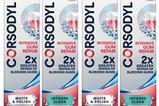
In January, trends forecasting company WGSN made its predictions for the coming year. Among them was the rise of uni – “the edible, rich, creamy orange lobe part of the sea urchin”. It would “move beyond the fine dining menu” into packaged food and ingredients, WGSN forecast.
It’s too early to tell if that prognosis is accurate. But the signs aren’t good for more off-the-wall innovations. As this report illustrates, innovation has largely been far more practical of late. Many new products are designed to comply with legislation such as HFSS and EPR, for example.
This emphasis on must-have rather than nice-to-have is understandable. After all, supermarkets’ ongoing range rationalisations have made it harder to land NPD. Then there’s the financial risk. As we cover in our main feature, many suppliers have shied away from large-scale innovation given the accompanying large investment. Inflationary pressures have led to many businesses maintaining, rather than growing, their portfolios.
Read more:
-
Britain’s biggest brands 2023: The top 100
-
How to justify marketing spend during a cost of living crisis
-
Who are the brands challenging for a space in the top 100?
-
How brands are innovating through a cost of living crisis
-
The winners and losers of the past year
And yet, without innovation there is the danger of stagnation. Of the top 100 brands, 56 failed to grow volumes in the past year. To a degree, that was to be expected: 2022 marked a bounceback from Covid restrictions and elevated at-home consumption.
Yet innovation arguably determined the winners from the losers. Some of the worst volume declines this year were put down to external factors such as Covid (Fever-Tree) or even recalls (Kinder). But notably, those brands did little on the NPD front.
Meanwhile, the fastest-growing brands by volume took pains to capture shoppers’ imaginations with NPD. Take Walkers’ non-HFSS lineup of crisps, Rustlers’ All Day Breakfast Pancake Stack – The Grocer New Product Awards’ Champion of Champions – or Lucozade’s first foray into caffeinated energy drinks, Alert.
These are the products that speak to key sales drivers of health, hybrid working and hectic lifestyles. And they’re apt responses to what Reckitt’s Nick Horan describes as “exceptional market forces”. These often require innovation to be sped up rather than slowed down, he advises.
At the same time, he acknowledges some NPD plans should be put on hold until the right time. Like sea urchin lobes.

How Britain’s 100 biggest brands are innovating through a cost of living crisis

NPD is expensive and risky. Some brands have pulled back, but others are reaping the benefits of thinking long term and investing accordingly
- 1
- 2
 Currently
reading
Currently
reading
Stagnation, innovation and Britain’s Biggest Brands
- 4
- 5
- 6
- 7




































No comments yet